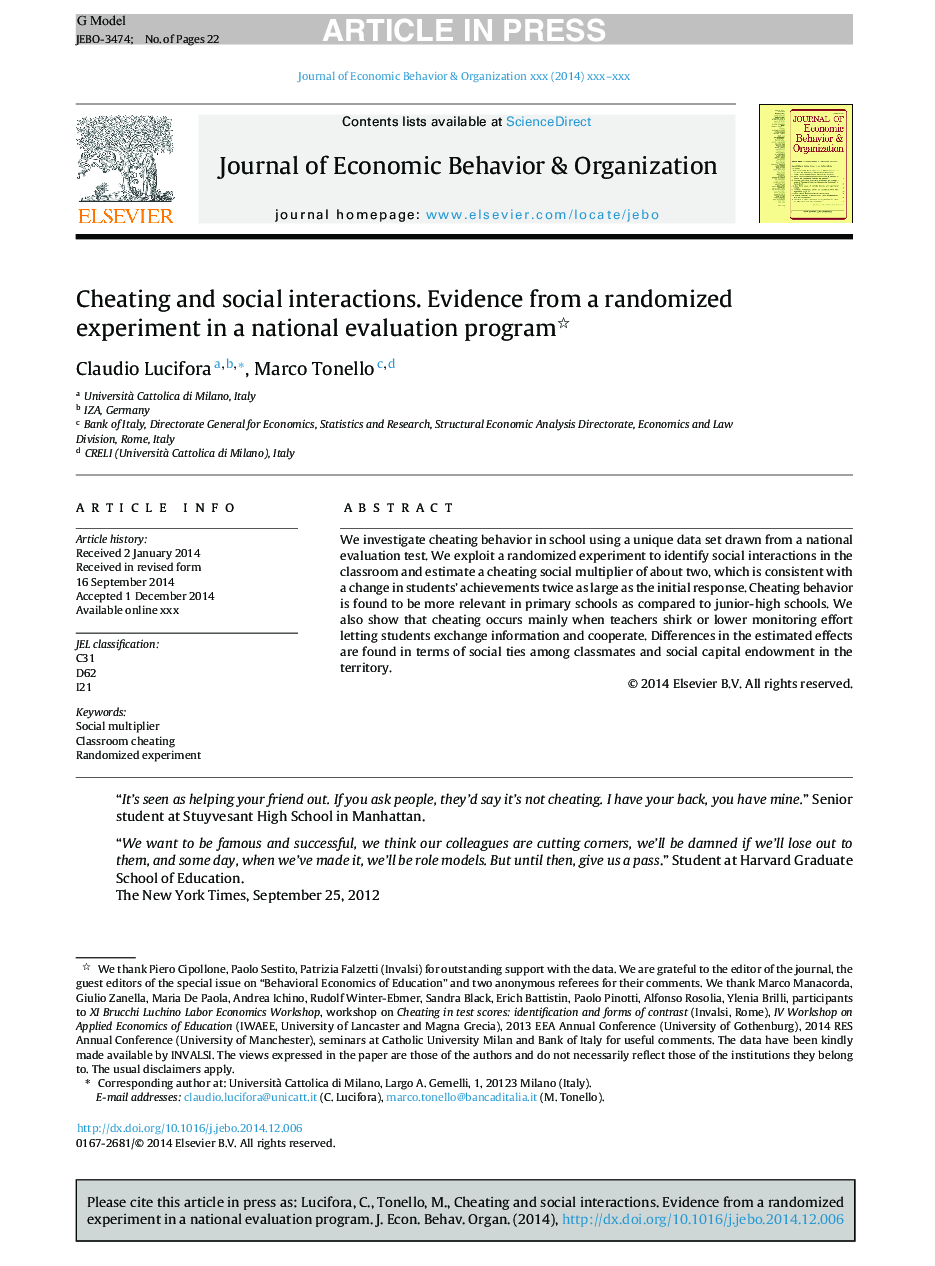| Article ID | Journal | Published Year | Pages | File Type |
|---|---|---|---|---|
| 7243176 | Journal of Economic Behavior & Organization | 2015 | 22 Pages |
Abstract
We investigate cheating behavior in school using a unique data set drawn from a national evaluation test. We exploit a randomized experiment to identify social interactions in the classroom and estimate a cheating social multiplier of about two, which is consistent with a change in students' achievements twice as large as the initial response. Cheating behavior is found to be more relevant in primary schools as compared to junior-high schools. We also show that cheating occurs mainly when teachers shirk or lower monitoring effort letting students exchange information and cooperate. Differences in the estimated effects are found in terms of social ties among classmates and social capital endowment in the territory.
Related Topics
Social Sciences and Humanities
Economics, Econometrics and Finance
Economics and Econometrics
Authors
Claudio Lucifora, Marco Tonello,
